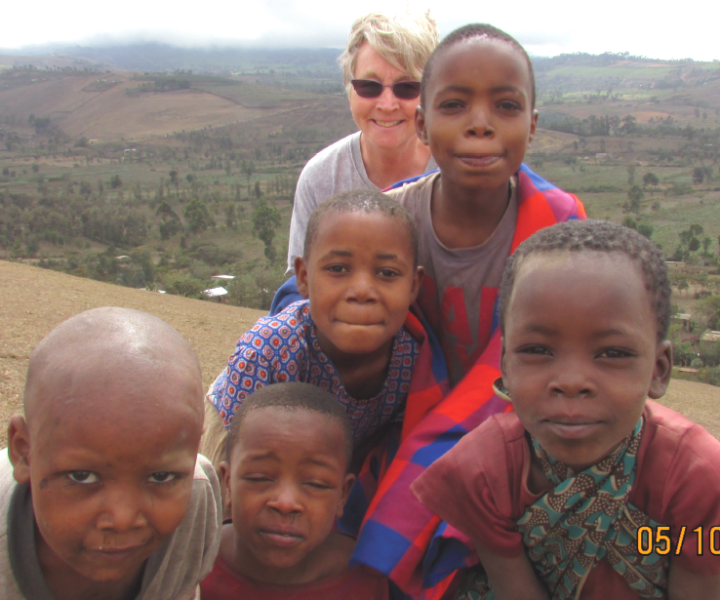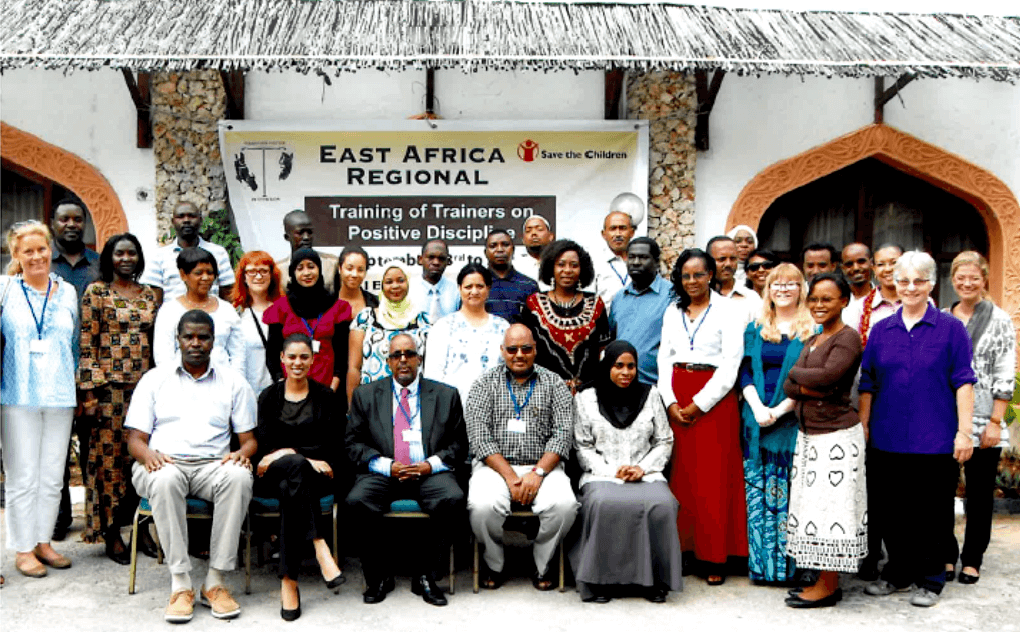Jean went on her 2nd trip to Africa as a Positive Discipline trainer. Here she shares some of her experiences.
This fall I returned to Africa to train trainers in Positive Discipline, this time to Zanzibar, Tanzania. Thirty participants joined the training from 7 different African countries and many different languages but most spoke at least some Swahili. I quickly learned Jambo (hello), Assanta (thank you), and Pole Pole (slowly slowly). News of the ambush and shootings in the Nairobi mall preceded the arrival of all the participants. This started our week with many people focused back home in Kenya wondering about the safety of friends and loved ones. But we went on as planned. As the participants arrived we connected, supported each other and learned about each other’s lives. Many of the stories were beyond comprehension for a Canadian. I heard so many moving stories. I’d like to share one of “J” from Uganda.
“J” works as a parent support liaison in Uganda. When we first connect she is excited to share information about her work. By the time we finish the training she shares her dreams to do direct front line programming with parents rather than her current position. She talks about the physical challenges that children face just going to school in Uganda.
Children must carry all their textbooks and their lunch with them in a large pack every day, as there is no safe place to leave their books at school. There are no school buses anywhere in Eastern Africa, and children walk for easily 10km every day. Many children are experiencing back problems from carrying this constant daily heavy load. When asked about physical punishment in the schools, “J” shares a story of a young boy who was caught wearing three pairs of pants in this hot climate. It’s his strategy to avoid the pain of so many beatings (or canings as they are often called).
School days are long: 8 AM to 6 PM. Younger children go home earlier to empty homes and spend their afternoons unsupervised as parents work until six or later. The standards are very high and a tremendous amount of pressure is put on children to do well.
Many children work very hard and endure regular beatings to get through school only to find that there is no job for them in the end. We are told that suicide is very common for these young people who lose hope and see no other choice for themselves. “J” has hope for change in Uganda, but she’s caught in the dilemma of parenting with Positive Discipline and then having children go off to school and be beaten.
There were also many questions, many that were just impossible to answer, questions like, “But Jean how do we do positive discipline in child-led households with children as young as 10 doing the parenting? We have learned this week that their brains aren’t developed enough yet.” and “How do we help children understand adults using Positive Discipline with them when they have been beaten all their life until now?” Good questions. How do we? “We need our teachers to learn about Positive Discipline. How can we train our teachers?” “Pole, pole.”
By the end of the week, I’m told that I am now the East Africa Positive Discipline trainer and that I should be prepared to buy property here as they expect me to come back often!
So the training is over, emails are shared, goodbyes are said and I head off on an ethical safari where we are privileged to see so much of the Serengeti wildlife. We see giraffes, elephants, baboon families, lions, gazelles, zebras, impalas, ostriches and many other birds and animals in all their stunning natural beauty.
Along with all the game viewing we also have an opportunity to visit two of the local tribes in their villages and their homes.
First we visit the Iraqw tribe where we are invited into the home of one of the families. The trail into the village is red dust that coats our skin and fills our nostrils. We are invited into a small rectangular hut and it takes a few minutes to get used to the darkness. We are gradually able to see the corner with the small area for cooking, the few basic pots and the blackened roof from the cooking smoke. Paulo, our host, gives us some history on his culture. He makes his living sharing his culture with tourists like us. When asked about child discipline, he explains that his life doesn’t allow for time to talk with children. Life is much too hard. They are up early and must walk half an hour to get water. Children are expected to do this walk up to three times before they walk to school; the same process is repeated after their long day at school. After supper all the children sit in one small room with a single light bulb to do their homework until bed. If children are late or don’t do their homework or chores at home, they are beaten with a stick. If they are late for school because they have to fetch water, the teacher doesn’t ask them why they are late but also beats them. Children quickly learn that life is hard work and the price they pay for not obeying is a painful beating. No toys of books of any kind are visible anywhere in the village.

Our next visit is to a Massai village, we spend the night in tents behind a school. The school principal is our host and gives us details of his efforts to provide education for as many Maasai children as possible. He has over a thousand children in his school and ten teachers—a hundred children in a class! There are very few school supplies and no money for lunch or even water for the children. They go to school all day without food or water. We sit speechless at hearing this reality. We later tour the school and see the limited resources in these small classrooms. This man is amazing to me. He keeps doing what he can, not giving up. “Pole Pole” he says, we will educate the children.
The children follow us everywhere with beseeching eyes and ragged clothes. They want to hold our hands to touch us, to have their photo taken for the pleasure of seeing the result on the camera screen. Older children have learned to ask for money and we find it so hard to have them need so much.
When I return home, and walk into my home my first thought is it’s so big … and so full of material things. Wow, we have a lot more space than we need!
I’m so aware of the ease, with which I can get water, just turn the tap, but I hesitate to turn it on as often; I’m careful not to let it run. I notice the over abundance of things our children have here. Our children have the privilege of making choices; of going to school; of playing; of eating when they are hungry; of drinking when they are thirsty; of feeling safe; of not being beaten.
But these things should not be—are not—privileges for children; these are their rights. I am even more committed now to work to ensure that all children everywhere have these rights.
Jean Tinling, Director of Family Programs

